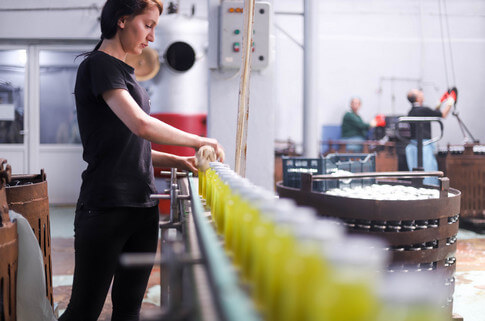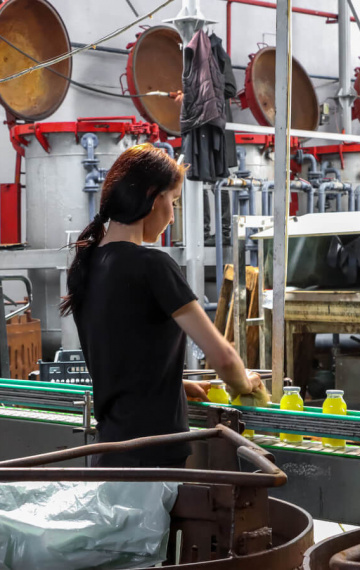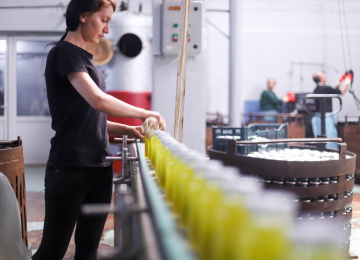
The EU has several tools at its discretion to support SMEs within the framework of the Eastern Partnership, with a relatively recent addition being the Equity instrument, part of Access to Finance (A2F).
This instrument was piloted in Armenia, where the EU as part of its EU4Business Initiative, with support from EBRD, made a commitment of US$ 10 million to EU-Armenia SME Fund – a private equity fund, managed by Amber Capital, which is mandated to pursue appropriate risk adjusted returns by investing in Armenian SMEs. This way, EU’s funds are being managed by a professional asset manager for investments in the share capital of local SMEs to fund capital expenditures and expansion projects.
The Fund held its closing in January 2021 with total commitments of over US$ 60 million and has already made several equity investments in Armenia in various sectors – ranging from the traditional agriculture and food processing to more technology-driven sectors such as renewable energy and digital assets. One such investment was made in Sis Natural CJSC – a leading local producer and exporter of natural juices and food preserves, operating under well-known brands such as “Yan” and “Sis”. Though relatively recent, the investment in Sis Natural may already be viewed as a successful case study of how SMEs can benefit from private equity.
Unlocking the topline potential
There are only two sources of funding to which all private enterprises have recourse – either debt or equity. Naturally, variations and sub-categories of these two sources exist, such as mezzanine instruments and different tranches of seniority, however, ultimately the company must either borrow money to fund its operations or rely on own equity.
In this context, while debt finance is readily available in the Armenian market, very few SMEs are able to secure financing at attractive rates. Generally, the USD-denominated bank debt available to Armenian SMEs has interest rates of between 7% - 9% and a tenor of between one and three years. For local currency denominated debt the respective rates are c. 3% higher. In addition to the relatively high interest rate, the business is required to post significant amounts of collateral – from plant and equipment to personal guarantees by business owners. Issuance of bonds on the capital markets is generally the prerogative of larger corporates, which have a well-established corporate governance structure, audited financials and a more predictable cash flow generation – pre-requisites to listing, which most SMEs do not have in place.
Sis Natural was one of the SMEs facing this predicament – a fast-growing, family-owned business that required funding to meet customer demand, but the interest rates charged by commercial banks alongside with collateral requirements stifled the company’s expansion efforts. With the introduction of institutional private equity in Armenia through EU-Armenia SME Fund, the owners of the business quickly found a solution to the funding challenges they were facing – partner up with an investor, who can bring not only much-needed capital, but also help with the introduction and implementation of corporate governance standards, open up new networks and unlock the full potential of the business.
The investment in Sis Natural, which is widely viewed as the first institutional private equity deal in Armenia, was signed in November 2021, following several months of due diligence and negotiations. As a result of the deal, the Fund acquired a significant minority stake in Sis Natural and the entire investment amount was deployed to fund capital expenditures and working capital requirements. A new warehouse was launched, plant and equipment were enhanced, and the company was able to procure the raw materials needed to boost its sales levels. Thanks to the new capital, the company was not only able to enter new markets, but also expand the selection and volume of products offered to the existing client base, witnessing attractive growth rates within half a year from the investment already. However, while growth and expansion of the business are one of the primary results of an equity investment, there are many more benefits that come with it.
ESG standards paving the way to sustainability
SMEs typically start their lifecycle as a family-run business and the key priority is often revenue generation and product design, oftentimes at the expense of internal functions, such as financial reporting, control environment, planning and analysis. Those companies that survive the start-up phase, transition into growth, usually accompanied by more healthy financial results. However, these enterprises often continue to remain key-person organisations, where the founder carries out not only the job of the CEO, but also such important functions as finance, sales, customer relationship and quality control. The result is significant dependence on one person and an inevitable plateau of the growth trajectory, accompanied by inefficient decision making, either due to the lack of reliable and complete information, or lack of a more comprehensive perspective, which could be achieved through inputs from a diversified base of stakeholders.
In this regard, institutional private equity investments have a long history of enhancing the governance of the company through the introduction of a number of tried and tested tools, complementing the fresh equity capital with experience and knowledge gained from other industries, companies and markets. In the case of Sis Natural, several important changes were introduced from the outset: a board of directors was created, with some members appointed by the Fund, and a clear list of matters and voting thresholds was agreed upon, in order to help the company take informed decisions. The Fund’s investment also acted as a catalyst for the implementation of an enterprise resource planning system, allowing the company to monitor its financials more efficiently, better understand marginality of its products and identify areas requiring more focus from management. In addition, a requirement for external audit was introduced and a clear plan of action was put in place to enhance the finance function with the resources it required to be able to conduct proper financial planning, run variance analysis and monitor financial results on an ongoing basis. All these changes are imperative for an SME to transition from a key-man organization to a corporate player with a robust set of controls and processes to ensure long-term success of operations.
Beside the governance aspect, procedures are also being introduced to proactively monitor the environmental and social impact of the company – ranging from measuring the carbon footprint of the business, introducing elements of green energy, assessing employment statistics and terms to foster diversity and fair treatment of the workforce – all in an effort to ensure that the growth of the business is based on sustainable drivers in the long term.
Benefits of smart capital: the future ahead
There is always a certain amount of resistance by SME owners to open up equity to newcomers, as this implies relinquishing a degree of control over a company they founded and operated for many years. However, once this resistance is overcome, the benefits of having an institutional investor quickly become evident. In the case of Sis Natural, the investment resulted in reduction of leverage and a significantly healthier balance sheet, which helped the company navigate the consequences of the conflict in Ukraine, as shipments to a number of customers were temporarily put on hold while the debt required servicing.
In addition, the company was able to carry out much-needed capital expenditures, leading to growth in revenues. However, while both balance sheet optimization and expansion have created significant value for the shareholders, the benefits of the investment extend far beyond them: true shareholder value is being unlocked through the corporate governance practices that are being implemented. Such practices, once embedded in the company’s processes and procedures, are crucial not only in helping the company to operate more efficiently, but also in preparing the business for an eventual sale or IPO, allowing the shareholders to monetise many years of hard work.
In the words of the founder and CEO of Sis Natural, Armen Hakobyan, “we have started to see real positive change in our business – from the extent to which financials are being analysed and reported to the level of scrutiny over strategic proposals raised during our monthly Board meetings. Having worked with the Amber Capital team over the past six months, we are confident that we made the right decision in welcoming a new equity partner to our company and are much better equipped for the challenges ahead.”
The positive experience of Sis Natural is one that Amber Capital’s investment team are determined to replicate over many equity investments in Armenia. As noted by Anushavan Simonyan, Managing Partner at Amber Capital Armenia, “The Fund has a mandate to identify and invest in attractive private enterprises in Armenia, fostering growth, introducing governance best-practices, and ultimately leading to a more robust economy with a developed corporate landscape and diversified sources of funding. We are very encouraged by our first set of investments and expect to close many more transactions in the near future.”





